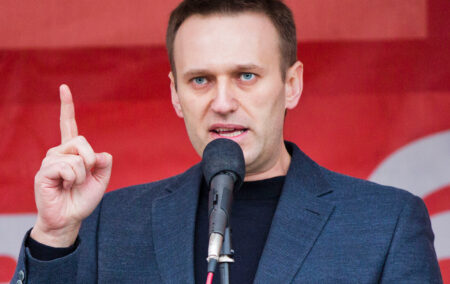Alexei Navalny, a high-profile critic of Russian President Vladimir Putin, has been discharged from a Berlin hospital after 32 days of treatment, including 24 days in intensive care, for what various European tests confirmed was poisoning by a Novichok nerve agent.
Navalny this week posted a picture of himself standing unaided with a message saying doctors had given him every chance of a full recovery.
The Kremlin has rejected accusations that Navalny was poisoned on Putin’s orders.
The German government said laboratories in France and Sweden had reconfirmed German tests showing that the poison used on Navalny was a Novichok agent. The Kremlin has said there is no proof of that.
After tests confirmed poisoning with a Novichok nerve agent, the European Union demanded a ‘transparent’ investigation by the Russian government. ‘Those responsible must be brought to justice,’ a statement read.
Navalny collapsed on a flight in Siberia on 20 August. The plane made an emergency landing in Omsk. Russian officials were persuaded to allow him to be airlifted to Germany two days later, where he was admitted to the Charité hospital in the German capital.
The hospital said in a statement: ‘Based on the patient’s progress and current condition, the treating physicians believe that complete recovery is possible. However, it remains too early to gauge the potential long-term effects of his severe poisoning.’
The BBC reported that a nerve agent from the Novichok group was also used to poison Russian ex-spy Sergei Skripal and his daughter in Salisbury, England in 2018. Both survived, but a local woman, Dawn Sturgess, died after coming into contact with the poison.
Britain accused Russia’s military intelligence of carrying out that attack. Twenty countries expelled more than 100 Russian diplomats and spies. Moscow denied any involvement.
[Picture: Evgeny Feldman, https://commons.wikimedia.org/w/index.php?curid=27431233]

